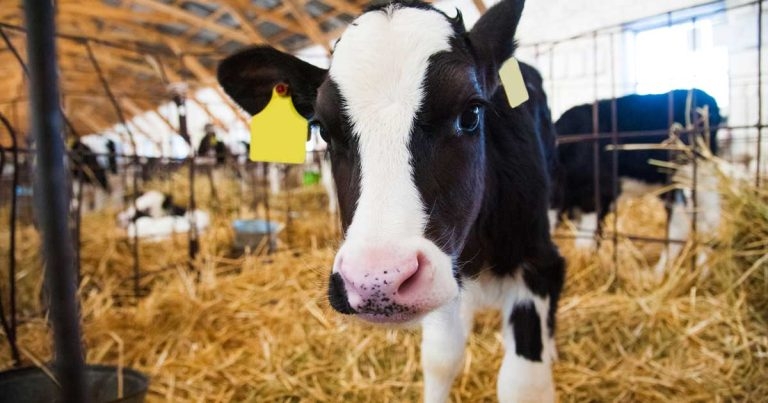21 May 2025
Senior clinician has also called for a collective industry focus on responsible usage in response to the findings from the Dutch animal health group, Royal GD.

Image © SGr / Adobe Stock
Vets have been warned to rethink their approach to treating neonatal calf diarrhoea after a new report revealed rapidly growing resistance to a commonly used antibiotic.
A senior clinician has also called for a collective industry focus on responsible usage in response to the findings from the Dutch animal health group, Royal GD.
Its latest Monitoring Animal Health report for cattle revealed 72% of Escherichia coli K99 isolates were found to be resistant to paromomycin last year, up from 48% in 2021.
The document also warned of increasingly frequent detection of cryptosporidiosis in calves presented for pathological examination – particularly in animals up to 14 days old.
The group, which has been responsible for animal health monitoring in the Netherlands since 2002, stressed it was not known whether more of the drug was being used to treat the two issues.
But the report acknowledged such a trend could explain the rise, and Kat Baxter-Smith, a clinician and veterinary advisor for MSD Animal Health, argued that it emphasised the need for change.
She said: “What we need now is a mindset shift – moving away from routine antibiotic use and towards a more robust, preventive management strategy.
“It’s not about eliminating treatment altogether, but using it only when it is really needed.”
The paper noted that paromomycin, and the wider aminoglycoside group it is part of, were considered “essential” in human medicine.
It added: “It should, therefore, be used cautiously and only guided by diagnostics in the treatment of individual animals.”
The report also urged consideration of measures including “optimum colostrum supply and nutritional status, good hygiene, a balanced dry period and vaccination of the mother animals to keep calves strong” as it cautioned against use across entire herds.
It said: “Using paromomycin as a herd-wide treatment for a farm problem such as cryptosporidiosis merely gives other pathogens a chance to build up resistance, which would obviously be an undesirable development.”
Dr Baxter-Smith said such measures enabled vets and farmers to take a “crucial step” in protecting animals’ health and reducing antibiotic dependence.
But she warned: “If we’re serious about calf health and tackling antimicrobial resistance, we need to make preventive care a non-negotiable priority.”
The findings have also been welcomed by BCVA junior vice-president David Black, who said they had emphasised the importance of AMR monitoring.
He added: “The whole industry needs to maintain a focus on responsible use of antibiotics to slow its development, while continuing to advocate for good colostrum management, calf hygiene and housing, and preventive vaccinations where appropriate.”